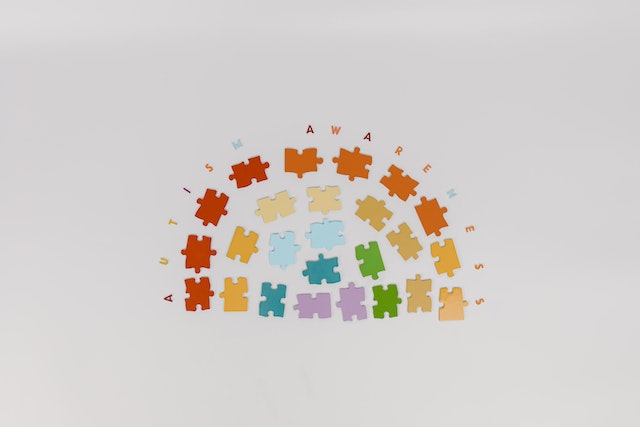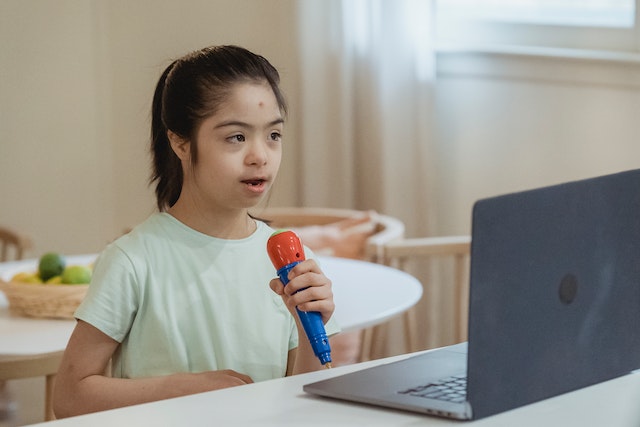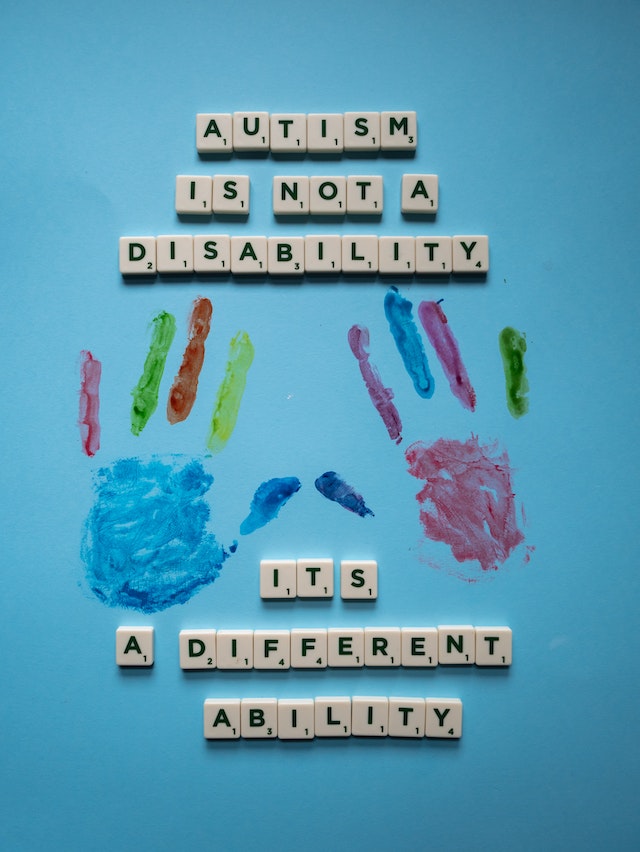In this article, we will be discussing Music therapy lessons for autism and some of the best tips you can use to prevent and cure Autism in your day-to-day life and lead to a prosperous and healthy lifestyle.
In a world where there are many different ways to express oneself, music is a global language that speaks to our hearts, brains, and souls. Humanity has been enthralled by its incredible capacity to transmit emotions and close social divides for generations. The entrancing effects of music, however, go well beyond simply amusement or aesthetic pleasure. Today, we explore the amazing therapeutic practice known as Music therapy lessons for autism, focusing on its dramatic effects on autistic people.

Utilising the ability of music to improve emotional well-being, promote cognitive function, and strengthen social ties, music therapy is an organised and evidence-based method. People with autism can get a variety of advantages from taking part in thoughtfully created musical activities that go beyond traditional therapy approaches.
contd…. music therapy lessons for autism.
What is autism?
Developmental impairment known as Autism spectrum disorder (ASD) is brought on by variations in the brain. Some ASD sufferers have a recognised distinction, like a genetic disorder. Other factors are still unknown. ASD is thought to have a number of underlying reasons that interact to alter how people typically develop. There is still a lot we don’t know about these factors and how they affect people with ASD.
People having ASD may act, interact, communicate, and learn differently than most other people. Frequently, their appearance does not distinguish them from others. People with ASD might have a wide range of abilities. For instance, while some ASD sufferers are nonverbal, others may have superior conversational skills. Some persons with ASD require a lot of assistance daily, while others may function independently and work.

ASD usually manifests by the age of three and can last the rest of a person’s life, though symptoms occasionally become better with age. ASD symptoms can appear in some kids within the first year of life. Others might not experience symptoms until they are 24 months old or older. Some ASD children develop new skills and reach developmental milestones up until the age of 18 to 24 months, at which point they cease doing so or lose the abilities they previously possessed.
Adolescents and teenagers with ASD may struggle to make and keep friends, communicate with peers and adults, or comprehend what is appropriate behaviour in the workplace or at school. They might be noticed by medical professionals if they also have disorders like depression, anxiety, or attention-deficit/hyperactivity disorder, that affect persons with ASD more frequently than those without ASD.
6 Symptoms of autism
A neurodevelopmental illness called autism spectrum disorder (ASD) causes a wide range of symptoms and difficulties in various people. There are several traits that are typical of autism, despite the fact that the degree and appearance of symptoms might vary widely. Let’s examine these signs in greater detail:

- Social Communication Issues:
- One of the hallmarks of autism is the inability to participate socially and communicate effectively. People with autism may struggle to start and maintain conversations, decipher nonverbal signs (including gestures, tone of voice, and facial expressions), and comprehend social conventions and expectations. They could experience trouble conversing back and forth and might have trouble comprehending other people’s viewpoints or emotions.
- Repetitive Behaviours and Restricted Interests:
- People with autism frequently display routine actions and limited interests. These actions may take the form of repeated movements (such as hand flapping or body rocking), an insistence on routines or sameness, or obsessive preoccupations with particular subjects or items. For instance, someone with autism might know everything there is to know about a certain topic and engage in lengthy discussions about it.
- Sensory Sensitivities:
- Many people with autism exhibit either heightened or decreased sensitivity to sensory inputs. They could be overly or undersensitive to certain sounds, lighting, textures, aromas, or flavours. Overwhelmed by loud noises or intense light, feeling uncomfortable with particular materials or textures, or being extremely sensitive to certain odours or tastes are examples of common sensory sensitivities. Their daily lives may be greatly impacted by these sensitivities, which may result in anxiety or avoidance behaviours.
- Transitional Issues:
- For people with autism, regular changes or changes between activities might be difficult. They might strongly prefer consistency and predictability, and when confronted with sudden changes they might react with resistance, worry, or dissatisfaction. Transitions can be easier for people with autism if there are clear routines, visual assistance, or early warnings.
- Restricted and Stereotypical Patterns of Behaviour:
- People with autism may exhibit restricted or repetitive patterns of behaviour. This may involve rigidly adhering to a particular interest or activity, following rigorous routines or rituals, or displaying repetitive motor behaviours (such as flapping hands or spinning). These behaviours may give autistic people a sense of security and predictability, but they may also limit their flexibility and ability to adjust to novel circumstances.
- Impaired Social Interaction:
- One of the main characteristics of autism is difficulty interacting with others. People could have trouble reading and responding to social signs including maintaining eye contact, deciphering facial expressions, or utilising the right body language. They could struggle to make and keep friends, establish relationships, show empathy, or comprehend other people’s viewpoints. Individuals with autism can enhance their social connections by receiving social skills coaching and support.
contd… music therapy lessons for autism
Causes of autism:
Although the specific causes of autism spectrum disorder (ASD) are yet unknown, it is thought to be brought on by a confluence of hereditary and environmental variables. Considered contributing variables to the emergence of autism include the following:

1. Genetic Factors:
Strong evidence exists to suggest that genetics play an important part in autism. Numerous studies have demonstrated that specific genetic mutations and variants increase the likelihood of developing ASD. Numerous genes, both common and unusual, are thought to interact to affect the emergence of autism. However, no particular gene has been determined to be the sole contributor to autism.
2. Environmental variables:
Environmental variables may potentially influence the onset of autism, though it is unclear exactly how they play a part. According to certain research, the risk of ASD may be increased by prenatal exposure to specific substances or situations, such as maternal illnesses during pregnancy, prolonged exposure to toxins, or specific drugs. It’s crucial to remember that not everyone exposed to these elements will acquire autism, though.
3. Neurological Disparities:

According to research, people with autism differ from people without the illness in terms of the structure and function of their brains. The growth and connection of brain networks related to social communication, sensory processing, and thinking may be impacted by these variances. The exact mechanisms causing these changes in the brain are currently being investigated.
4. Immunological Factors:
According to certain studies, immune system disorders may be linked to autism. ASD sufferers have been found to have altered immune systems, including immunological reactions and inflammation. To fully comprehend the connection between autism and immune system malfunction, more research is nonetheless required.
5. Other aspects:
Advanced parental ages at conception, difficulties during pregnancy or childbirth, and specific prenatal diseases like maternal pregnancy diabetes or sensitivity to high levels of air pollution are some additional factors that have been looked into in relation to autism. But more research is needed to completely understand how these factors contribute to the emergence of autism.
It is crucial to remember that autism is a complex disorder with a variety of symptoms and degrees of severity. Each person’s interaction of genetic and environmental elements is unique, and each person may have different causes. The complex mechanisms underlying the onset of autism are still being studied in order to develop effective therapies and assistance systems for people with the condition.
Thats why we are giving you knowledge through our article music therapy lessons for autism….
Risk Factors of Autism:
ASD is caused by a variety of factors. Environmental, biological, and genetic factors are only a few of the many that have been shown to increase a child’s risk of having ASD.
Although we don’t know much about particular reasons, the data indicates that the following factors may increase a child’s chance of ASD:
- having an ASD sibling
- having specific chromosomal or genetic abnormalities, such as tuberous sclerosis or fragile
- X syndrome problems during childbirth
- having elderly parents
Some Tips regarding Autism:
- Use structured and predictable musical activities to create a sense of routine and familiarity.
- Incorporate visual supports, such as visual schedules or picture cards, to enhance understanding and engagement.
- Tailor the music to individual preferences and sensory needs, considering volume, tempo, and style.
- Encourage active participation through singing, playing instruments, or movement to the music.
- Use music as a means of communication and self-expression, promoting verbal and nonverbal expression.
It’s critical to stress that the vast majority of people with autism lack a clearly identifiable aetiology, and numerous instances are probably brought on by a complex interaction of environmental and genetic factors that are still poorly understood. Due to the great degree of heterogeneity in the illness, several different causes are likely to have contributed to the development of autism. Research is still being done to better understand the risk factors for autism as well as its underlying causes.
contd music therapy lessons for autism…..
Music therapy lessons for Autism:
Autism spectrum disorder (ASD) sufferers have benefited significantly from music therapy. It is an intervention that addresses the particular needs and difficulties of people on the spectrum by utilising the strength of music and all of its components. The following are some advantages of music therapy for autistic people:

- Emotional Regulation:
Music has a significant emotional influence, and music therapy makes use of this impact to support emotional regulation in autistic people. Music-related activities, such as singing, playing an instrument, or just listening to it, can help people relax, cope with anxiety, and express themselves. Individuals can explore and efficiently control their emotions in a secure and organised environment provided by music therapy sessions.
2. Communication and Social abilities:
Music therapy can help autistic people with their social and communication abilities. A dependable and organised foundation for communication is provided by the rhythmic and lyrical components of music. Singing, composing, and musical activities are some of the methods used by music therapists to encourage both verbal and nonverbal interaction, turn-taking, listening skills, and shared attention. Sessions of group music therapy also promote cooperation, social engagement, and the growth of peer relationships.
3. Cognitive Development:
It has been demonstrated that music therapy aids the cognitive development of autistic people. Various brain regions associated with recall, focus, and executive functioning are activated by music. Cognitive abilities including recognising patterns, sequencing, solving issues, and auditory processing can all be improved by musical activities. People with autism can enhance their mental skills in a pleasant and interesting way through musical activities, improvisation, and learning instruments.
We hope you found the solution to your problem in this article “Music therapy lessons for autism”.
Are you ready to embark on a journey of brain rewiring and unleash your true potential? Look no further than Manthan Hub, the ultimate app for personal growth and transformation.
ManthanHub is a cutting-edge platform designed to help you rewire your brain, optimize your cognitive abilities, and achieve your goals with greater ease. Whether you’re seeking to enhance your focus, improve your memory, boost your creativity, or overcome limiting beliefs, Manthan Hub has you covered.
With our state-of-the-art brain rewiring techniques and comprehensive course offerings, you’ll have access to a wealth of knowledge and tools that empower you to reshape your brain’s neural pathways for optimal performance and well-being. Our courses are crafted by leading experts in the field of neuroscience, psychology, and personal development, ensuring that you receive the highest quality guidance and support on your transformative journey.
What sets ManthanHub apart is our user-friendly app interface, which makes it effortless to navigate through the courses, track your progress, and engage in interactive exercises and activities. You’ll have access to a variety of engaging multimedia content, including videos, audio exercises, guided meditations, and interactive quizzes, ensuring an immersive learning experience.
Join the thriving community of like-minded individuals on ManthanHub, where you can connect with fellow learners, exchange insights, and receive support and encouragement along your brain-rewiring journey. Our platform fosters a supportive and inspiring environment, where you can learn, grow, and thrive together.
Don’t wait any longer to unlock your brain’s true potential. Download ManthanHub today and embark on a transformative journey toward personal growth, enhanced cognitive abilities, and a life of limitless possibilities.
Remember, your brain has the power to change, adapt, and rewire itself. With Manthan Hub, you hold the key to unlocking your brain’s full potential. Start rewiring your brain today and watch yourself soar to new heights.
- Kundalini Yoga Benefits
- Can Ayurveda Cure Digestive Problems?
- Benefits of planting Tulsi at home
- Reasons behind why not eating onion and garlic?
- How to Cure Depression with Yoga
- Best ways to start your day positively
- 15 Tips to Make Your Diet Healthier
- Benefits of walking daily





